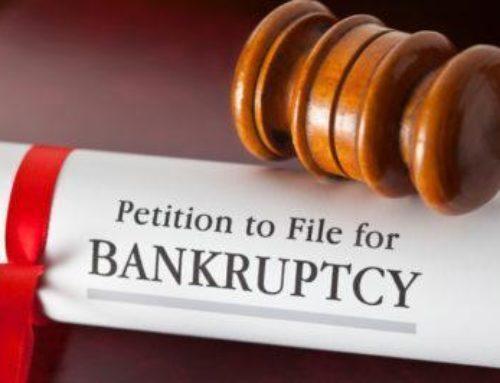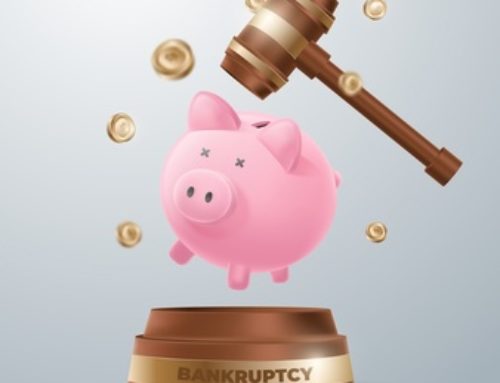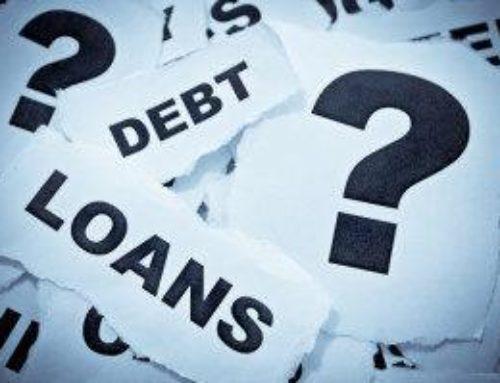Can I file bankruptcy with no-assets?
If you’re considering bankruptcy, one of the first steps you have to take is choosing among the various types of bankruptcy presented in the bankruptcy code. Generally, people who want to file personal bankruptcy do so under either Chapter 7 or Chapter 13. If you want a quick bankruptcy process focused on liquidation, the bankruptcy chapter for you is 7. If you want to keep your property and get out of debt through reorganization, you should file under Chapter 13.
A bankruptcy petition filed under Chapter 7 usually involves a debtor who has very few or no assets at all. In order to file bankruptcy under Chapter7, debtors have to pass a means test or be exempted from it. It is generally believed that Chapter 7 filers surrender their assets to the bankruptcy trustee in charge of their bankruptcy case, but this hardly ever happens since most Chapter 7 bankruptcy cases are “no asset.” This means that the bankrupt debtors don’t have an asset that the trustee can liquidate during bankruptcy proceedings.
No-Asset Chapter 7 Bankruptcy Filings
Filing for bankruptcy under Chapter 7 doesn’t often jeopardize the debtors’ remaining assets since they typically  qualify as bankruptcy exemptions according to either federal law or state law. In effect, creditors end up not getting paid since no proceeds are generated during the bankruptcy process. Such a bankruptcy filing tends to result in the discharge of the majority of the debts, frequently eliminating the creditors’ chance to collect on something their debtor was unable to pay.
qualify as bankruptcy exemptions according to either federal law or state law. In effect, creditors end up not getting paid since no proceeds are generated during the bankruptcy process. Such a bankruptcy filing tends to result in the discharge of the majority of the debts, frequently eliminating the creditors’ chance to collect on something their debtor was unable to pay.
Certain debts cannot be discharged. For instance, child support, taxes, and student loans are not dischargeable. The bankruptcy court notifies creditors that there won’t be any need to file a proof of claim since they won’t be able to collect on the debts involved.
No-Asset Bankruptcy Exemptions
If you’re filing bankruptcy under Chapter 7, you technically have to yield your assets to the bankruptcy estate. This will be liquidated to generate funds you can use to pay back your creditors; however, this only applies to non-exempt property. Exemptions are allowed because, according to bankruptcy law, a bankrupt debtor should be able to keep some property in order to survive the bankruptcy process and have something to build on after bankruptcy. Exemptions for bankruptcy cases vary from state to state. Most apply to specific assets like cars or houses, but there are also “wildcard exemptions,” which pertain to an amount that can be applied to a personal possession so it can be exempted.
The state’s bankruptcy laws largely influence the choices debtors make in filing bankruptcy. In order to get maximum bankruptcy protection, they have to take into account such details as the list of dischargeable debts and exemptions allowed them. Some states limit filers to state bankruptcy exemptions, while other states allow filers to choose between the state and the federal bankruptcy list of exemptions.
Unlisted Non-Exempt Assets
What if your trustee was to discover that there were non-exempt assets you failed to include in the bankruptcy information you provided? Whether the omission was intentional or unintentional, the creditors have to be notified about it so that they may submit proofs of claim in order to collect from it. Upon such a discovery, you may face penalty and your bankruptcy proceedings may be compromised if ever it is proven that you deliberately excluded those assets.
You have to be thorough in listing your non-exempt assets. If you have a non-exempt property you want to protect from liquidation, think about filing under Chapter 13 instead. You may still be eligible for it even if you pass the means test.
Overwhelmed by Financial Problems? Contact a West Virginia Bankruptcy Attorney Today!
In declaring bankruptcy, you have to determine what your best options are as well as find out how to file correctly. For this reason, it is in your best interest to get the legal advice and assistance of a bankruptcy lawyer before filing. The knowledge, insight, and guidance of bankruptcy lawyers definitely remain invaluable after filing and will continue to serve you even after bankruptcy.
If you’re in financial distress, you need to apply the most suitable debt relief solution for your situation. Bankruptcies have been known to give debtors the fresh start that they need. To declare bankruptcy with prudence and efficiency in West Virginia, call us at Thomas E. McIntire and Associates, L.C. and speak with one of our experienced West Virginia bankruptcy lawyers.




